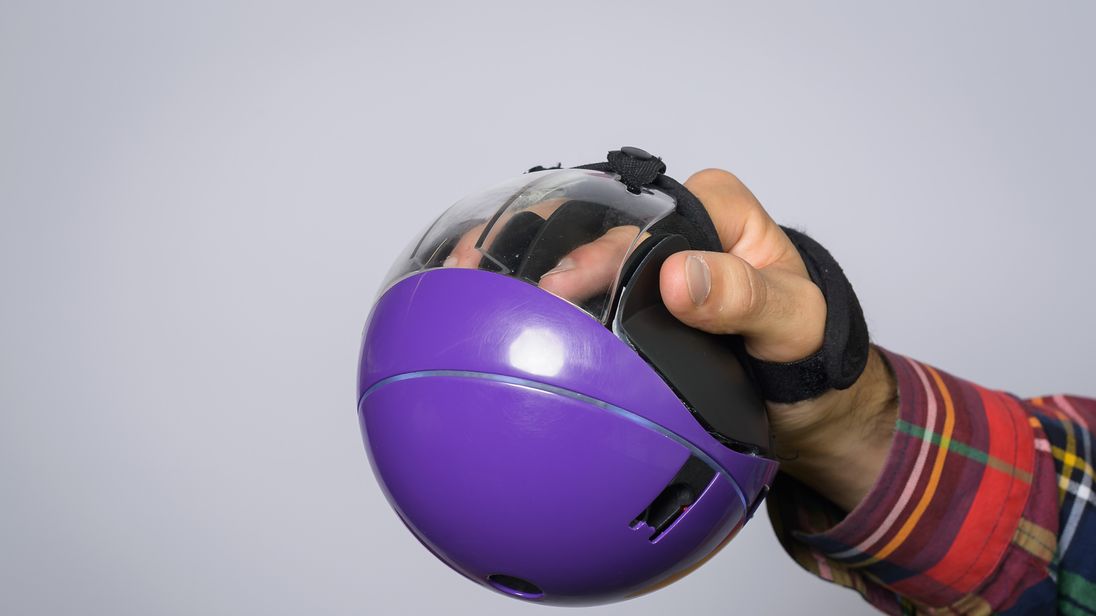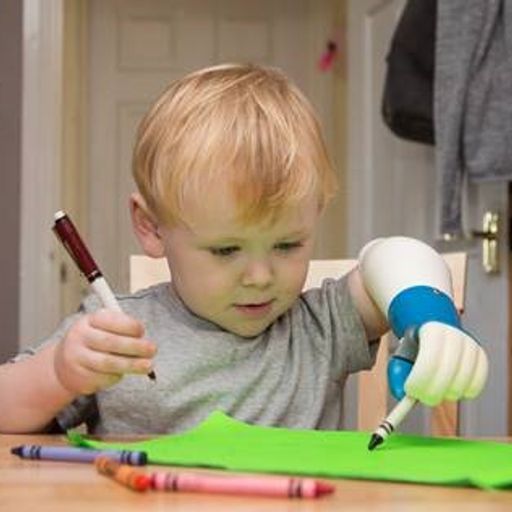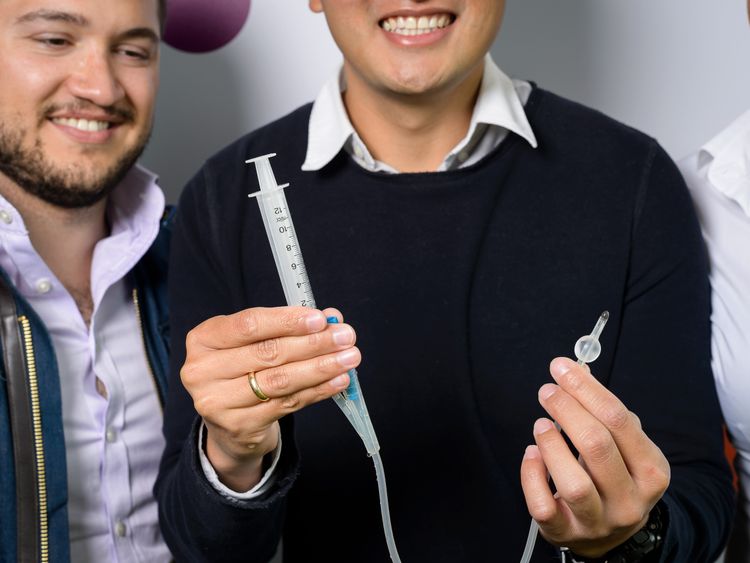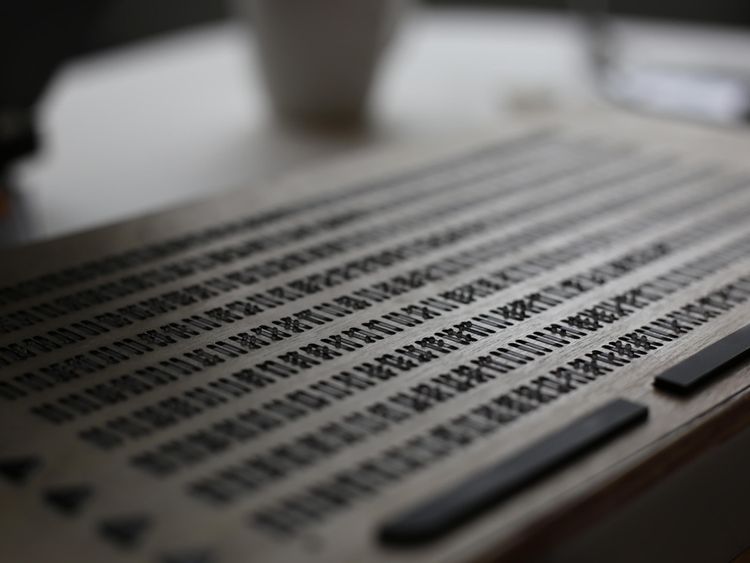I can't figure out the Neuroball so you'll have to ask your doctor what precisely it is doing and what your doctor has that does the same recovery for you. Our stroke associations are so incompetent they are upstaged by backyard inventors for stroke recovery tools. With 10 million yearly stroke survivors needing stroke recovery tools the stroke association that starts creating and selling them could become heroes to survivors. But we have fucking failures of stroke associations instead.
UK 'garden shed' inventors win prize for device to help stroke survivors
Three British "garden shed" inventions have been celebrated for their ability to "truly impact society".
A
"revolutionary device" which would help rehabilitate stroke survivors
has been declared the winner of a government-supported competition.
It was selected from a shortlist of 10 "garden shed
inventions" which could seriously transform people's lives in the
competition which was sponsored by innovation foundation Nesta.
The winning invention, Neuroball, is a device developed by UK-based
company Neurofenix, and it allows people who have suffered a stroke to
engage in rehabilitation exercises.
Inspired by relatives of the firm's co-founders who suffered strokes, Neurofenix aims to improve the life of stroke survivors who may not receive enough support after they leave hospital.
By connecting to an online platform, the device enables patients to improve dexterity in their hand and arm in competitive and collaborative training.
The team behind the device have been announced as the winners of the Inventors Prize, launched as part of the government's industrial strategy last year.
They will be given £50,000 to help get their product to market, where it could be used to help the 1.2 million stroke survivors in the UK - with 100,000 more occurring every year.
"We are so excited to be selected as the winners of the Inventor Prize, from the nine other brilliant and inspiring entrepreneurs," said the Neurofenix team.
The competition was launched to find "Britain's grassroots and garden shed inventors" and the £15,000 prize for second-place went to Cambridge-based Urologic for their NuCath catheter device.
In the UK over 500,000 serious urinary tract infections per year are contracted as a result of indwelling catheters, and these account for up to 40% of all hospital-acquired infections - with an annual mortality rate of over 2,000.
The estimated cost to the NHS of treating these infections is around £2bn annually.
The third prize of £5,000 was awarded to Edward Rogers for developing the Canute, essentially a "Kindle for blind people", which Bristol Braille have been working on in collaboration with the blind community, including Steph Sergeant, for five years.
The business secretary Greg Clark congratulated the three winning inventors, saying: "From researchers in life-saving meds to start-ups in garden sheds, we are home to some of the greatest minds in the world delivering cutting-edge inventions to improve lives.
"I am proud to see three of the best being recognised through the Inventor Prize.
"This is our modern Industrial Strategy in action, building an ecosystem in which the UK's world-beating entrepreneurs and innovators can go from strength to strength, with the brightest ideas of today turning into the leading products of tomorrow."
Nesta's head of international development, Constance Agyeman, said: "We've certainly witnessed our 10 shortlisted finalists going on incredible journeys as they turn their dreams into reality."
The competitors have received "financial support and professional mentoring helping them develop their prototypes, source invaluable partners and suppliers and [to] create business plans", said Ms Agyeman.
"We now hope all our entrants have been given the confidence
and expertise they need to turn their ideas into real products and that
they too continue their journeys."
"But we are especially excited to support our three overall winners in getting their products into the hands of consumers," she added.
Inspired by relatives of the firm's co-founders who suffered strokes, Neurofenix aims to improve the life of stroke survivors who may not receive enough support after they leave hospital.
By connecting to an online platform, the device enables patients to improve dexterity in their hand and arm in competitive and collaborative training.
The team behind the device have been announced as the winners of the Inventors Prize, launched as part of the government's industrial strategy last year.
They will be given £50,000 to help get their product to market, where it could be used to help the 1.2 million stroke survivors in the UK - with 100,000 more occurring every year.
"We are so excited to be selected as the winners of the Inventor Prize, from the nine other brilliant and inspiring entrepreneurs," said the Neurofenix team.
The competition was launched to find "Britain's grassroots and garden shed inventors" and the £15,000 prize for second-place went to Cambridge-based Urologic for their NuCath catheter device.
In the UK over 500,000 serious urinary tract infections per year are contracted as a result of indwelling catheters, and these account for up to 40% of all hospital-acquired infections - with an annual mortality rate of over 2,000.
The estimated cost to the NHS of treating these infections is around £2bn annually.
The third prize of £5,000 was awarded to Edward Rogers for developing the Canute, essentially a "Kindle for blind people", which Bristol Braille have been working on in collaboration with the blind community, including Steph Sergeant, for five years.
The business secretary Greg Clark congratulated the three winning inventors, saying: "From researchers in life-saving meds to start-ups in garden sheds, we are home to some of the greatest minds in the world delivering cutting-edge inventions to improve lives.
"I am proud to see three of the best being recognised through the Inventor Prize.
"This is our modern Industrial Strategy in action, building an ecosystem in which the UK's world-beating entrepreneurs and innovators can go from strength to strength, with the brightest ideas of today turning into the leading products of tomorrow."
Nesta's head of international development, Constance Agyeman, said: "We've certainly witnessed our 10 shortlisted finalists going on incredible journeys as they turn their dreams into reality."
The competitors have received "financial support and professional mentoring helping them develop their prototypes, source invaluable partners and suppliers and [to] create business plans", said Ms Agyeman.
"But we are especially excited to support our three overall winners in getting their products into the hands of consumers," she added.




Nonsense - if you and I could use the Neuroball - or video games, etc. - we'd be able to figure out recovery on our own, just as we continue to do.
ReplyDeleteWent on Neurofenix website - no proof of concept studies listed. 50,000 pounds to bring a product to market with no evidence that it changes outcomes is a red flag. How can a big ball that completely fills a stroke survivor's hand so it cannot interact with other object looks like it will inprove arm moment.
ReplyDelete